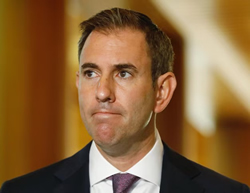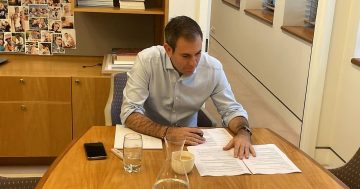Sharon Klyne* says legislating a key object for superannuation funds will give them greater focus on how income is derived and assets are invested.
 The Albanese government plans to legislate the objective of super to guide future policy and successive governments and prevent the erosion of the country’s $3.4 trillion pool of superannuation savings.
The Albanese government plans to legislate the objective of super to guide future policy and successive governments and prevent the erosion of the country’s $3.4 trillion pool of superannuation savings.
“In 2023, we will try to end the super wars once and for all, and make sure that the future changes to the system are compatible with the main objective of super and doing that requires us to embed superannuation and its purpose into law,” Treasurer Jim Chalmers said at the Conexus Financial Political Series breakfast on Monday in Sydney, in partnership with BT.
A clear objective of super will prevent unnecessary leakages in the system.
The Morrison government’s superannuation early release scheme during the pandemic resulted in $36 billion in lost retirement savings which Chalmers said was conducted “without consultation and little consideration”.
The government is proposing to define super as: “The objective of superannuation is to preserve savings and deliver income for a dignified retirement, alongside government support, in an equitable and sustainable way.”
Retirement focus
Focusing on retirement will give super funds greater focus on how income is derived and assets are invested.
“A sharper focus on delivering for members requires that funds always invest in a way that secures the right risk return profile,” Chalmers (pictured) said.
However, he conceded the industry and government had more work to do around the decumulation phase and retirement products.
“We haven’t quite perfectly nailed the best set of choices for people in drawdown and… there’s been a reluctance about some of the products that have been available.”
With 3.6 million Australians retiring in the next 10 years, Chalmers said the use of digital tools is a way to offer scalable and affordable advice.
“That’s where digital could help.
“If used well, with the correct consumer protections, it could offer new ways to provide high-quality, cost-effective advice at a larger scale,” he said.
Treasury has released a consultation paper and the industry has until March 31 to make submissions.
Industry endorsement
Industry bodies including the Australian Institute of Superannuation Trustees, Association of Superannuation Funds of Australia, Council of Australian Life Insurers and the Financial Services Council as well as super funds such as HESTA endorsed the government’s move.
Deborah Ralston, former panel member of the Retirement Income Review and guardian of the Future Fund, also welcomed the proposed definition and its emphasis on retirement income.
“Most importantly super is to provide retirement income.
“It is not a nest egg, but to be used and drawn on in retirement.
“In order, to achieve this super needs to be preserved for this purpose,” she said.
The proposal is an important step forward as it focuses on retirement income and recognises that super sits alongside government support, including the age pension said Mercer partner David Knox.
He suggested using the term ‘purpose’ in place of ‘objective’ as purpose is the rationale for something to be done or create which is different from objective which is more goal-oriented.
Housing affordability continues to be a pressing issue in Australia with the widening gap in retirement outcomes for renters compared to home owners, the growing number of retires retiring with mortgage debt, and the increasing size of mortgage debt at the retirement.
“I’m not saying that housing should be included in an objective of super, but all involved in policy need to be aware of the integrated roles of housing, super, other savings and government in shaping retirement outcomes,” The Conexus Institute’s executive director David Bell said.
Legislating a clear objective for super will give the government the legal basis for tax reform, industry experts have said.
However, Chalmers demurred on announcing clear plans to overhaul the tax system particularly around high super balances, only saying “it is important that we recognise that if our big task is to make superannuation sustainable, then this type of conversation shouldn’t be off the table”.
Additionally, he said the government has no immediate intention to boost the Superannuation Guarantee to 15 per cent.
“That’s not something that we’re focused on or budgeting for in the near term – we think it’s important that we get to 12 [per cent],” Chalmers said, noting the political resistance raising the SG has faced under the previous government.
*Sharon Klyne is Editor of Investment Magazine.
This article first appeared at investmentmagazine.com.au











